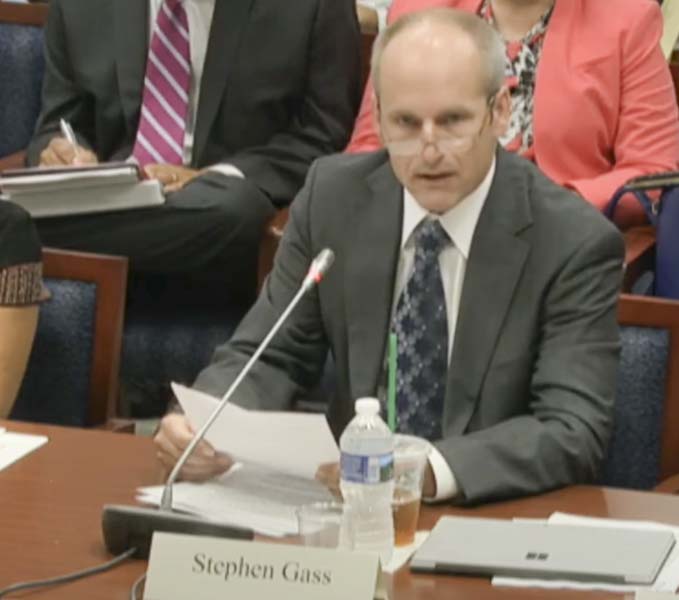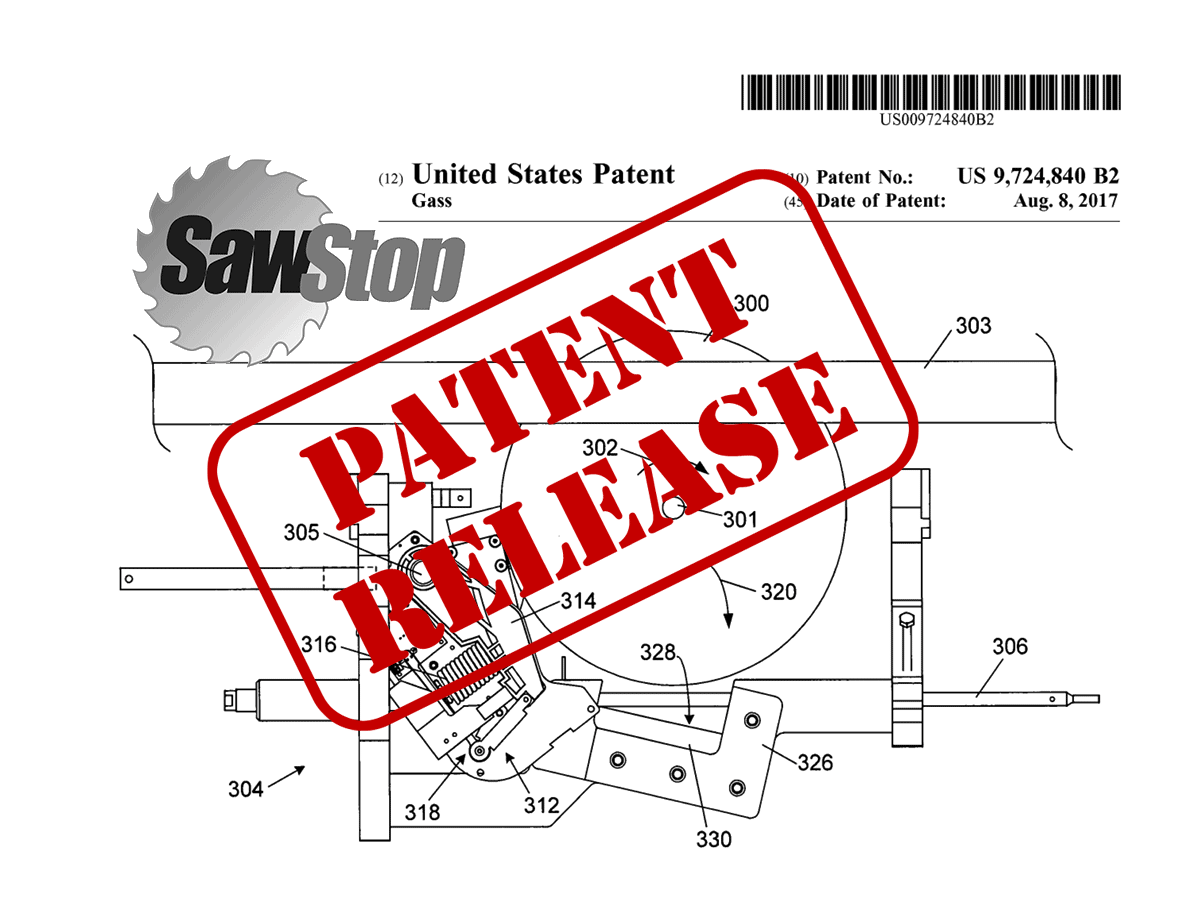Last week, SawStop made an announcement that reignited a long-running conversation. In response to proposed rulemaking from the U.S. Consumer Product Safety Commission (CPSC) regarding table saw safety mechanisms, the company confirmed that it will “dedicate” U.S. Patent 9,724,840 (better known as the SawStop 840 patent) to the public. This design stops a blade from spinning the second it makes contact with flesh (triggered by conductivity).
But, for years, SawStop has fiercely guarded its patent through aggressive lawsuits. In doing so, it has quashed almost every attempt by competitors to develop safety measures, no matter how remotely similar. Therefore, consumer advocates have accused SawStop of using the 840 patent as a tool to protect the digits in its profits and not on users’ hands.
Most recently, that seems to have come to a head with the embattled company’s February 28 testimony before the CPSC. Based on their history of litigation, the public’s response has been lukewarm at best.
SawStop 840 Patent Battles: The Backstory

If you’re familiar with the timeline, you probably know that SawStop is no stranger to patent litigation. In fact, Stephen Gass, the inventor of the technology behind SawStop’s 840, is a patent lawyer.
Initially, he pursued legislation to mandate Active Injury Mitigation (AIM) systems like the technology behind SawStop’s 840 patent. This would, in effect, require competitors to license the company’s design for any of their table saws.

Long story short, other toolmakers like Bosch attempted to add safety mechanisms to their equipment (namely their Reaxx table saw), but SawStop filed suit, halting that model’s production.
CPSC Targets SawStop’s 840 Patent
The position that many in the industry and some on the CPSC have taken is that SawStop has been trying to monopolize the table saw industry.
For example, among SawStop’s lawsuits was an antitrust claim they filed against several manufacturers (including Bosch). According to a February 1, 2024, comment that Bosch submitted to the CPSC, SawStop alleged that its competitors conspired not to license the 840 safety technology, creating a monopoly in the process. But Bosch cites this suit as evidence that the logic is the other way around.
Members of the CPSC agree.
In October of last year, commissioners initiated an investigation into SawStop’s proposed AIM performance standard requirement. Specifically, Commissioner Peter A. Howard wanted to know whether SawStop had agreed to license the 840 patent on “fair, reasonable, and nondiscriminatory terms.”
In other words, how would the market fare in the wake of Gass’s suggested mandate?
SawStop’s AIM Proposal and the Table Saw Market
Based on an analysis by CPSC economists, the proposed AIM rule would seriously disrupt the table saw market. In a letter to Gass and Matt Howard, CEO of SawStop’s owner TTS North America, they concluded that:
The requirement of AIM technology in table saws almost certainly would result in most firms licensing the [840 patent] from [SawStop]. This could grant a large amount of market power in the licensing of AIM technology. Firms would then have to spend additional money for licensing, along with installation of the technology. While most firms would likely continue production by licensing AIM technology, some firms … would likely drop out of the market altogether.
CPSC Economists, Letter to Stephen Gass and Matt Howard, October 18, 2023
As for the financial consequences, they determined that there would be an “increase in price if a significant number of firms exited the market due to licensing.”
Dedicating the SawStop 840 Patent to the Public
On February 28, 2024, Howard testified before the CPSC. In a nutshell, TTS’s position was that the competition was biting them for being ahead of the curve. Moreover, he stated that the company had a right to profit from its innovation.
The following day, Pro Tool Reviews attended a press conference, during which Howard essentially doubled down on this stance. In particular, he aimed at various members of the Commission, who accused TTS of “rent-seeking” behavior.
Ultimately, it all comes down to how SawStop’s long-standing position colors its sudden decision to dedicate the 840 patent to the public. Is it altruism or surrender?
Some think it’s a way of saving face. Others question how genuine it is, pointing out that the gesture has a caveat. SawStop will not release the patent until the proposed AIM requirement goes into effect, which likely will not occur for several years.
So, what happens in the meantime? Howard didn’t have a definitive answer.



